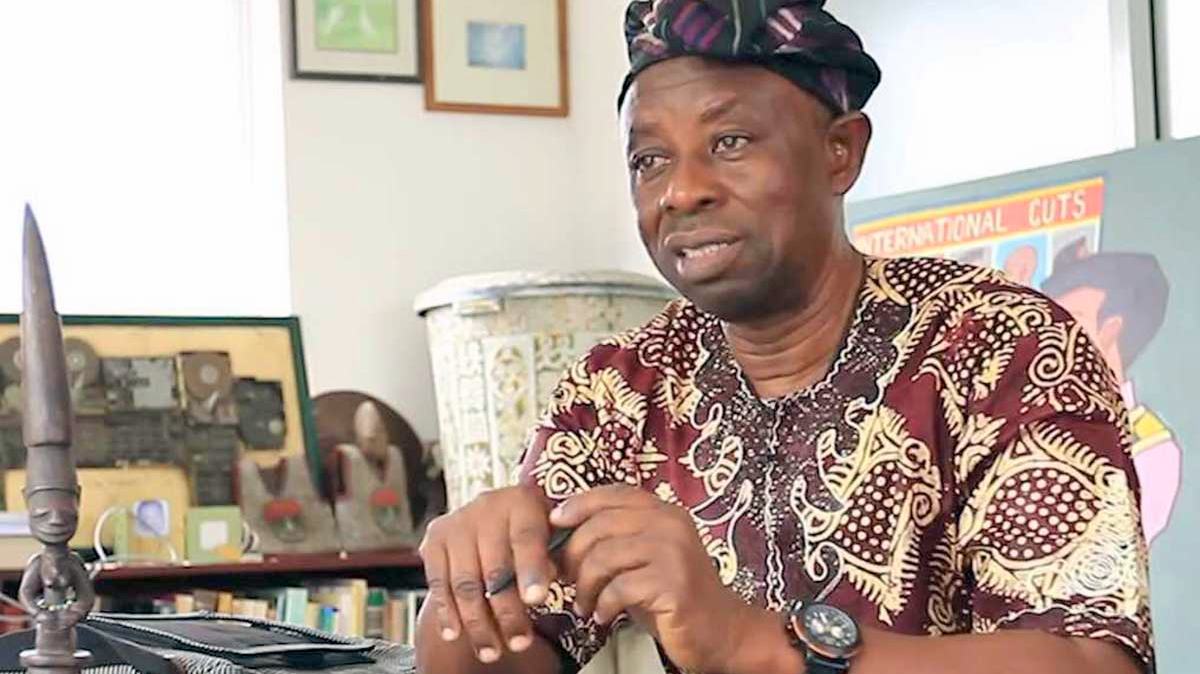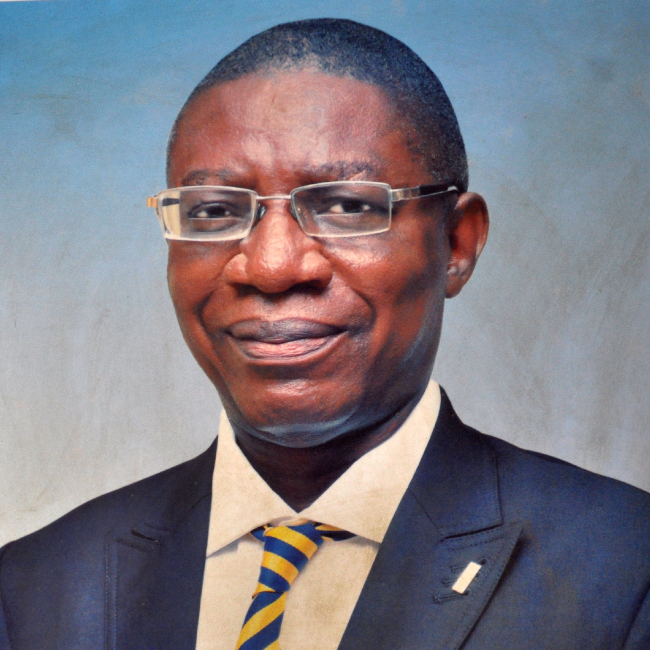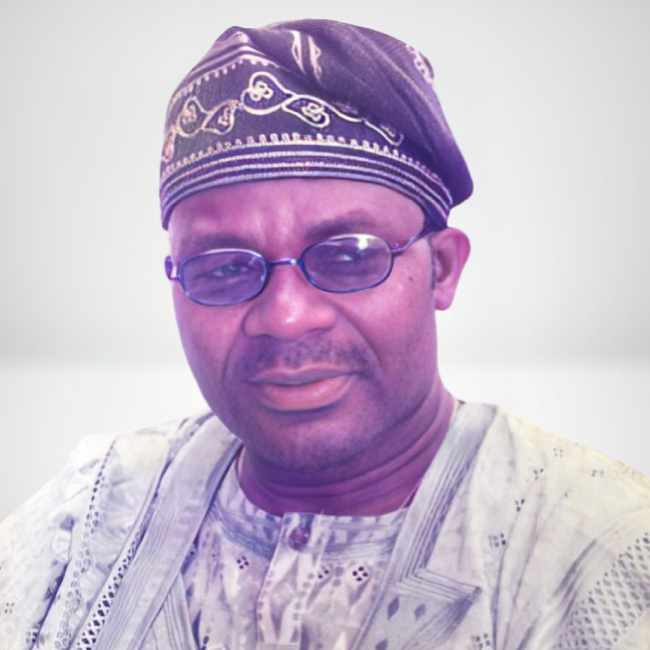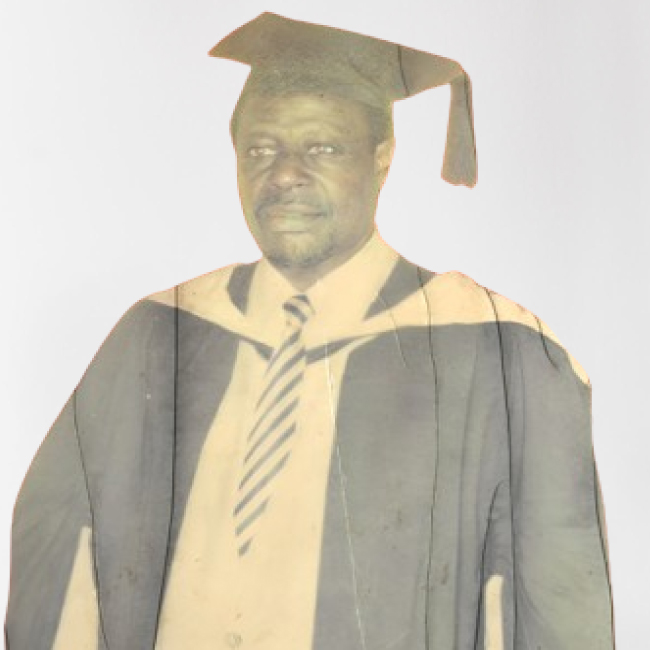By Agsoba Bankole Banjo
That the Nigerian film industry is one of the glowing positives in this country is no longer in doubt. For those who have toiled to take it to the heady heights it is, Nollywood, as we call it, owes more than a cursory regard. From the days of the late Hubert Ogunde’s moving theatre to the Oyin Adejobi era, Ade Love and the likes, the industry has undergone significant transformation especially in cinematography, acting and storytelling; and, of course, the marketing of movies. Of the lot who have carved a niche for themselves in the motion pictures, few come close to the inimitable Distinguished Agsoba Tunde Kelani, Uncle TK, as we call him. The Mainframe boss is a Director’s Director, having had the privilege of tutoring many Star acts, Producers and Directors, including Kunle Afolayan whose career started as a prodigy in Saworoide, a Tunde Kelani adaptation of a popular play. A very busy man, it was not easy to get to speak with Uncle TK. In response to a request for an interview, one of his SMS read: “Hi Tosin, …I have a trip to Ipara for the 80th birthday of Uncle Jimi Solanke tomorrow…”. Occupied as he was, he found time for the AgsobaNews team and we were more than eager to take him on. Dressed in a buttoned-up adire shirt with his trademark AGSOBA cap styled in a gobi, a beautiful pattern of adire and ankara designed as the backdrop, he came across as a man at home with culture and tradition. As the interview wore on, we knew he was prepared for us, at some point switching cameras when the initial one was not giving the right video output. Talk about a filmmaker and the camera, a match even Zoom cannot put asunder.
He flashes a genial smile as we relayed the President General’s goodwill to him across the Zoom platform. It was only apt we started from his latest cinematographic exertion: Ayinla. Why Ayinla? We asked him; why shoot the film now, over forty years after the demise of the Apala maestro when he could as well have shot it perhaps twenty years ago? “Twenty years ago, I was developing in motion pictures. As you know, I started in television and from television into motion pictures.” For a man who had shot the groundbreaking ‘Ti Oluwa nile’ some thirty years ago, this was a surprising yet humble admission; goes to 39 ¬ show how much of a continuous learner he considers himself. “Why Ayinla? As a filmmaker, sometimes we prefer our own city and so Abeokuta has been the backdrop for most of my movies: Maami, Saworoide Arugba, Agogo Ewo, Ti Oluwa Nile and part of Dazzling Mirage,” he continues as he delves into a narrative of his childhood years crisscrossing the Egba landscape on foot from Iberekodo axis to Abeokuta Grammar School at Igbein. “With the story of Ayinla, I decided to introduce Abeokuta in another way, to capture the flow of the Ogun River and then take off into the sky and enter the city of Abeokuta and head straight for the rocks. In that same breadth I managed to get what was left of Abeokuta, and I featured the Central Mosque, the Holy Trinity Church in Ikereku, the only church I have seen with three towers built in stone in 1938. Essentially, I managed to document what is left of Abeokuta along the story of the narrative we created for Ayinla. So there is a lot about the film that needs to be decoded for you to understand it fully.”
He concludes with a knowing grin that lights up his face. But there was a snag: the Ayinla portrayed in the movie ran at variance with what majority knew of the legend, thus rousing a lot of commentary amongst movie buffs particularly those of Abeokuta extraction. “The filmmaker has creative licence to shoot what he wants. Ayinla passed on some 41 years ago, it is interesting that people younger than 50 didn’t know much of him. So it is a film designed to present Ayinla to the younger ones and I am happy with the interest, because people ask me questions about the film, the music, because they want to download it and all. The film was to focus on the last 6 months of Ayinla’s life, so we created a plausible story that is going to be entertaining on the one hand but would draw on the talent and personality of this man, who was not educated in the western sense, and his lead drummer, Adewole Oniluola, who also was not educated. Between them they gave us a brand of Apala music that is unique to them. They covered history, philosophy, storytelling everything, uniquely Ayinla Omowura’s beat unlike none other. Ayinla and Adewole Oniluola created a legacy. So it is true most of the things you saw on the film was not his life. We did not even shoot like 25% of the film.”
He rues the pre-planned opening scene of the film which never made it to shoot. In the scene, Ayinla was supposed to perform to a section of Abeograms students at the School Hall using the original site of the school. But why did that shoot not happen? “It pained me a lot, we had obtained all permissions to shoot, we had gotten the students ready, we arranged the shuttle to take them from Idi aba to Igbein but something unusual happened. A day before we were supposed to film it, I think something happened (in the City) and the Ministry of Education shut down all schools. It was quite painful as we did not want to defy government orders and all.” Anyone who is conversant with Mainframe Productions must have noticed a very familiar name listed as Executive Producer on a number of the film outfit’s production: Rasheed Adewolu Ladoja. For a filmmaker, it is one thing to have the creative nous, it is another to have the funds to make your dreams. Few upcoming filmmakers ever get to shoot their dream. The lucky ones might hustle for bank loans or crowd-fund their projects, but for Uncle TK, a fated meeting with Ladoja birthed a lifelong friendship, partnership and relationship he enjoys till date. “I met Alhaji Rasheed Adewoolu Ladoja many years ago as a successful businessman. He is somebody who is cerebral, a man of such intelligence, for someone who studied Chemical Engineering in French coming from an Anglophone country, you should know the level of intellect such a being must possess. He is a traditional man, a farmer, down-to-earth; if you don’t know him, you might want to think lowly of him.
He is part of our team, as somebody who has given us a lot of backing, and I respect him a lot.” He says, unable to betray the level of reverence he has for the Ibadan High Chief. Many say the ‘new’ Nollywood suffers from poor stories while having done so much in terms of the quality of pictures. But the veteran filmmaker disagrees. He salutes the massive progress the industry has made outside government influence so much that the government has been forced to give it more attention. “We still have a long way to go but we have come a long way as well. When you talk about Africa as an economic powerhouse and you talk about Nigeria, definitely the entertainment industry ranks high in contributors to that.” As for storytelling, “everybody has a right to tell their own story way. The idea whether a film is good or bad is the audience’s decision. Of course, there are the government guidelines on the type of film that can be made through the National Film and Video Censors Board but by and large our films have exposed the diversity of our cultures and heritage, so we are going to have different opinions. The interesting part of it is that there is always an audience for those stories.” Away from movies and filmmaking, Uncle TK reminisced about his Abeograms days, relating his choice of career to the direct influence of the trainings and experiences at Abeograms. “I am lucky to have been tutored by Bishop J.S Adeniyi, I didn’t meet Rev Kuti at School.
I started Thunderbolt with an inspiration from Abeokuta Grammar School. All those doxologies and the all. In the dialogue, Larinde Akinleye, the VP, he would quote Bishop Adeniyi, “the educability of a child depends on his ability to learn”. I took that from Bishop Adeniyi and used it in the film. I met all my friends there, Gbolade Osinowo, Bolaji Ladipo-Ajayi, Supo Alli-Balogun and we have stayed together almost for life. And remembering my 1966 AGSOBA group, these are wonderful friends and I am happy we received the standard of education that prepared us for the future and we are all doing very very well. And of course the importance of godliness, all these were imbibed at Abeograms. As a boarder, my father took me to Bishop Adeniyi and told him I 40 was a muslim, and Bishop assured him I would say my prayers and all. Every time Bishop Adeniyi saw me, he would greet me ‘Alfa Kelani, bisimilahi’ and I’d respond ‘Alihamdulilahi’. All of us students did everything together: sang the doxology, did Scripture Union, it was all so beautiful, we were all completely tolerant of all religion. I remember Abeokuta Grammar School every day of my life, the people who made me, Baba Kuforiji, Baba Oduntan, Taoshe, I remember all of them. We even had expatriate teachers back them, Americans, African Americans, Indians too and our Boarding House Master was Mr Henwood from the UK.” On extra curriculars, he remembers the place of sports at Abeograms. “Our Sports Master was Mr Akinbulumo who was assisted by Chief Kashimawo Laloko of blessed memory; that is why I was not surprised when Chief Laloko went into Sports Administration. Sports was for the development of the physical wellbeing of the child. The school also had a strong Literary and Debating Society, Dram Society and we were all-rounders.
It is interesting to know that I started my photography from Abeokuta Grammar School. The School had a photography club, myself and my late friend, Enechukwu Chukwuemeka, had a photography club too; by the final year, I had like four cameras already and I had learnt everything about photography. That was why after school certs, I felt it would be a colossal waste of time and money and investment if I abandoned photography. So I just got into apprenticeship at Dotun Ogunbanjo Studios and then from there, because I love cinema as well, I went into Television to be trained as a film camera man. You can follow my trajectory from Abeokuta Grammar School. I am happy I am one of those people who knew what they wanted to do in life and I started early.” How does one become the next TK? “I don’t think you should aspire to be the next TK. No. Even my children won’t want that. I expect you people to take advantage of technology and surpass Tunde Kelani. First, filmmaking needs commitment, it needs passion and you have to grow it on a daily basis. In my case, I could not do anything because of passion. Many thought I was out of my mind because filmmaking is not smooth sailing. It demands everything from you, you have to sacrifice everything for it. This is why I am eternally grateful to my family, my wife and the children, they lived in the studios for more than twelve years of their lives, sharing one room.
Films are not made in convenience, you have to go away all the time, so your bags are permanently packed. I was always away, when my children started to come, my son would look at me and ask ‘nigba wo le ma de?’ It is like a ministry, I have fallen down many times but I have had people to pull me up all the time. So it is a lifetime commitment, the passion and the patience. Upon all these, you must have character, iwa.” He further canvasses the place of reading, deep study in filmmaking. “Most of my films are books; I have the talent to translate text to screen. My most successful collaborations have been with Prof Akinwunmi Isola, Femi Osofisan and so on; which is why many of my films have an academic slant. I am never far from the academics, in fact I was appointed a Fellow at the Federal University in Abeokuta; I have an office there. As we rounded up the interview, we thank him for his time despite his tight schedule. He smiled broadly and welcomed us, quickly adding: “For Abeokuta Grammar School, I will do anything.” That was a sentence that rings in the head of this writer even now





